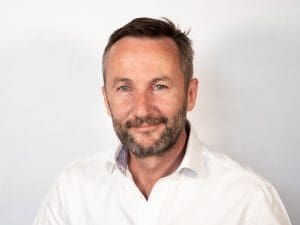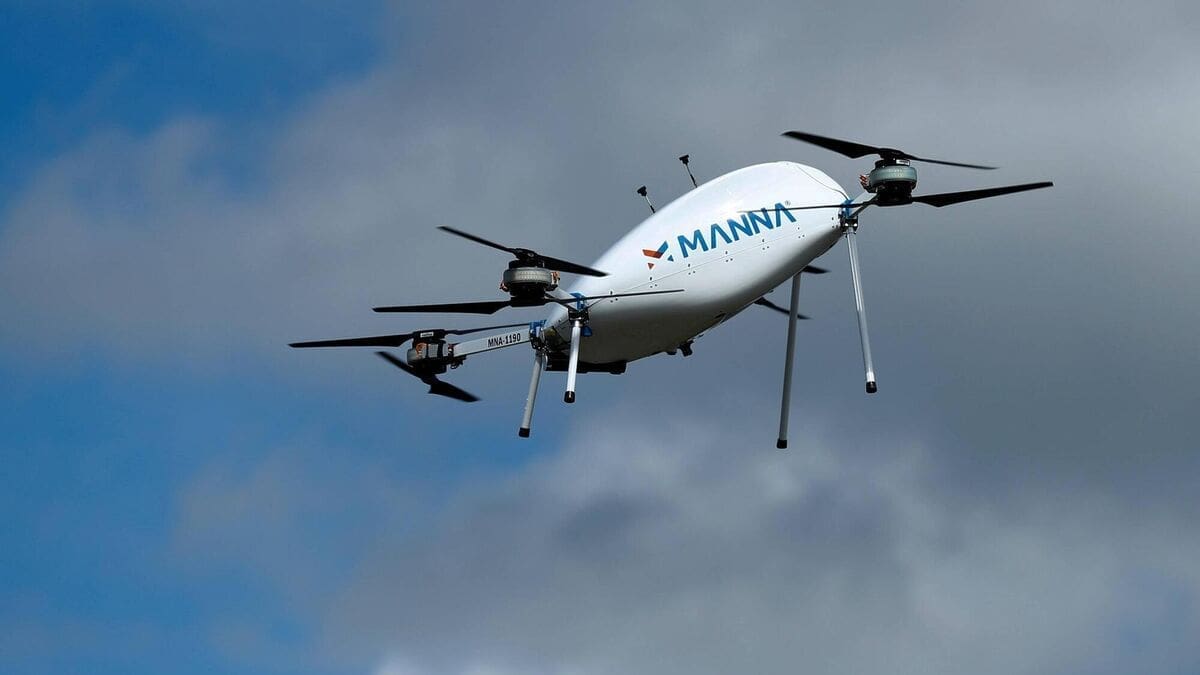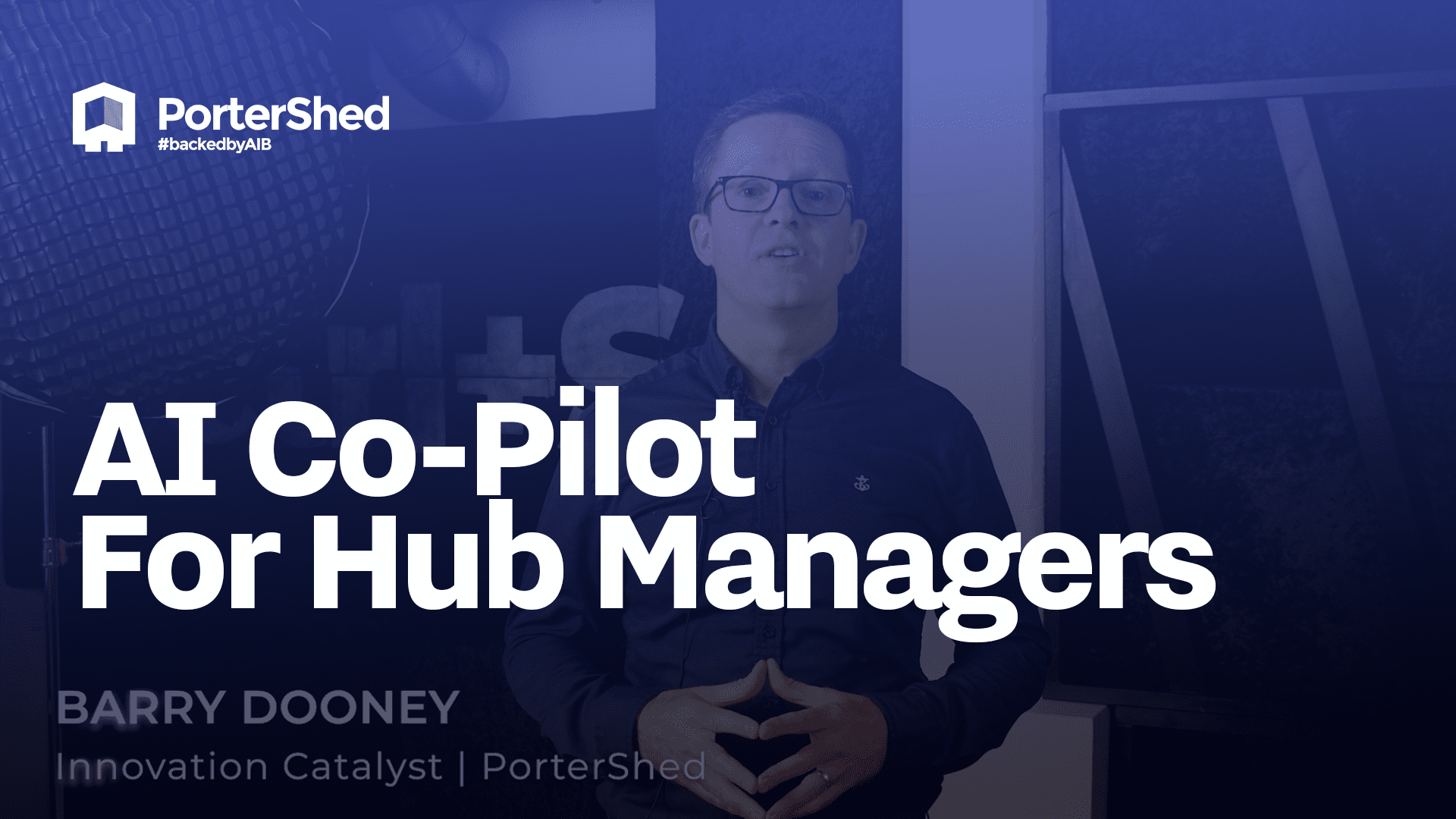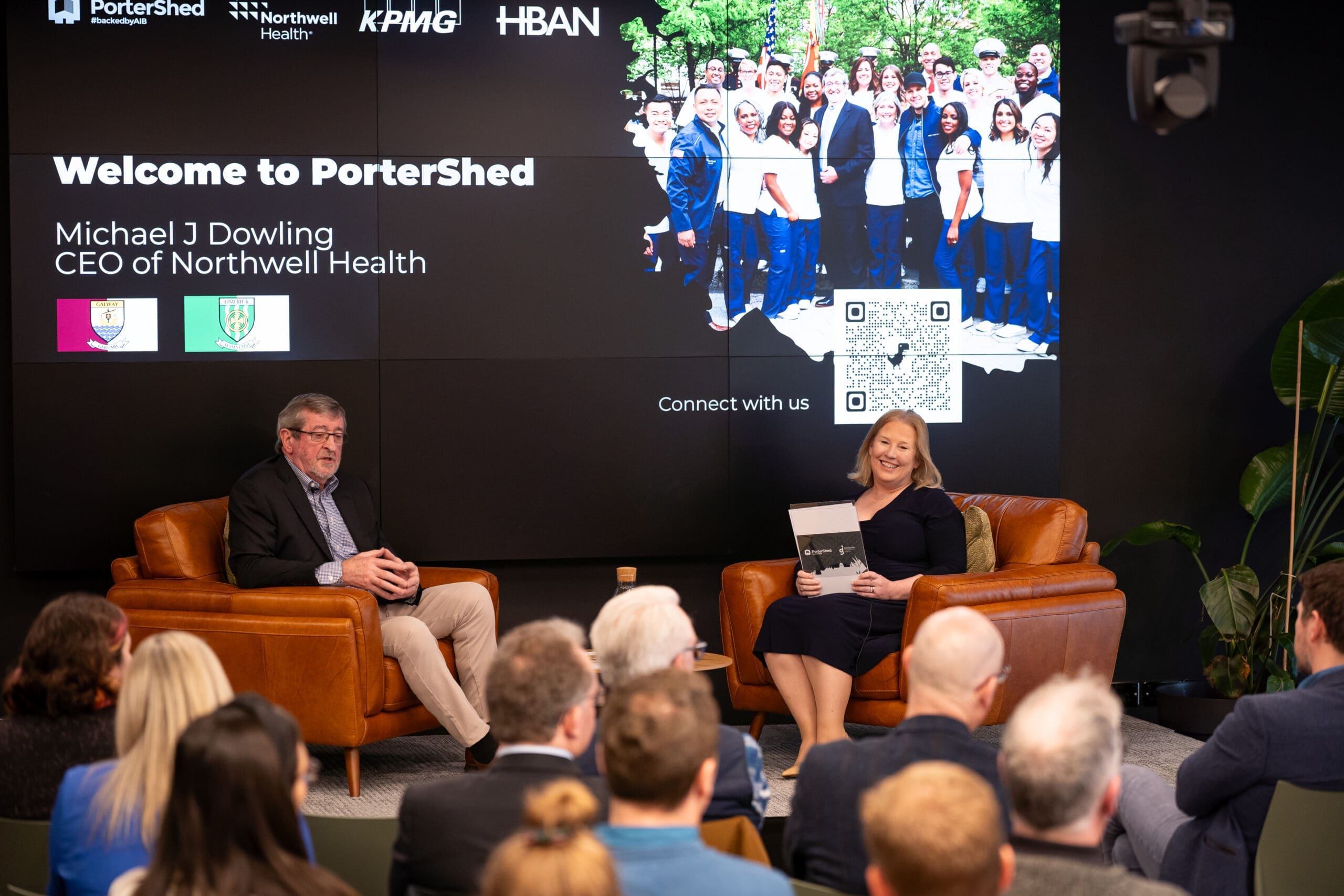Manna Drone Delivery is arguably one of the most eye-catching start-ups to have come from Ireland in the past few years. What started out as an ambitious idea has become a fully-fledged business that is unlike many anywhere else in the world. Founder Bobby Healy spoke with the PorterShed to discuss the current state of the Irish start-up ecosystem, the obstacles to funding that start-ups in Ireland continue to face today, and more.
Bobby is the man at the helm of the company which he founded in 2018, and ever since then, the operations have been going from strength to strength.
The company uses custom-developed aerospace drones to deliver almost anything somebody wants – coffee, takeaway, groceries – and have it delivered within three minutes straight to the customer’s door. What started as a testbed in Oranmore, Galway, has since seen the network extended to include Balbriggan in Dublin.
A lofty idea in more ways than one, it has been a quite literal iteration of a founder aiming sky-high. And they have reached new elevation in the last three years. In April 2021, it was announced that they had raised €20m in funding, and Bobby spoke in late 2021 that the company has plans to raise a further €86m in 2022 to grow the business further still.
So, does Bobby think that Ireland is a breeding ground for philanthropic investors who want to give back out of the goodness of their hearts?
“John Collison didn’t give me his money because he likes me and he believes it’s his duty to do that,” Bobby says.
“He believes it because he thought it was a good investment, and he’s interested in the space. Similarly, when I invest in companies, I don’t do it because it’s my duty or my obligation. I do it because I think there’s an opportunity to make a few quid, back good founders, and learn from them or help them… and it isn’t what goes around comes around, it’s a natural evolution.”
Bobby believes that it’s not easy for start-ups to find the capital needed to succeed – Ireland doesn’t have the same culture of investment as the likes of Israel or the United States, where businesses are backed with big sums of money starting out. He also feels that founders are on an uneven keel because there aren’t enough investors out there, meaning that start-ups don’t have a large pool to choose from.
“It’s very, very difficult to get funding. And the funds aren’t big enough, the cheque sizes aren’t big enough, and therefore the dilution is too much and worse still is that the companies don’t have the oxygen that they need to compete. If you look at the cost of a technology person now versus 15 years ago in Ireland, the price has gone up by at least three or four times – and the equivalent cheque sizes haven’t gone up three or four times, nor have the number of them,” he explains.
“It’s not a lack of ambition from founders, it’s a lack of available capital and efficiency of capital that means that it’s a buyer’s market – investors get an unfair advantage because they have a few quid, and there isn’t enough competition at the investor level.”
Listening to Bobby’s insight into just how difficult it is to get funding is a timely reminder of how impressive Manna Drone Delivery’s rise has been.

Their drones can travel at speeds of over 60km per hour, which is how they’re able to make their deliveries so efficiently, and the company’s growth has itself been even speedier.
And Bobby himself knows just how difficult it is for companies to emulate successful stories – like Manna’s. For some, the only option to actually move your idea to a stage where you can start to grow, develop, and make money, is to welcome capital from private investors. However, as Bobby points out, having this as your go-to option is not the ideal solution.
“It’s the only option available for most because our VCs don’t really do pre-seed – not on the level that they should be,” he says.
“In the absence of anything else, you don’t have a choice, right, so you take anyone just to survive. But taking private money – there’s a couple of problems with it. One – your private investor may not be a professional investor; two – having a private investor in your CAP table is corrupted for future rounds, it can cause a problem for raising future institutional investors, particularly if you have an unprofessional private investor. Then, three, your private investor is likely going to be driven by perhaps the wrong emphasis, and they’ll be looking for more percentage of the company at an early stage, which a founder may be willing to give away, however, it may be detrimental to their future, because if they take on too much dilution from uninformed, unprofessional investors, they’re in trouble before they even start, because their CAP table is corrupted and has to be re-set by future financial rounds. We shouldn’t be leaning on friends and family, or unprofessional investors – it’s a recipe for disaster.
“Now, I’m not saying it doesn’t sometimes work – there are some really great private investors out there. I hope to think I’m one of them. I’m professional at least, I take a balanced view. And there are others – Liam Casey or John Collison – there are lots that are good, but there’s also plenty of dogs that made a load of money in property or something, and suddenly they think they’re tech investors. We should have a naturally thriving pre-seed ecosystem here and we don’t.”
In addition to being quite a forward-thinking company in terms of its futuristic identity, Manna Drone Delivery are also leading the way from a responsible point of view – Bobby recently posted a video on Twitter showing how their drones can be used to deliver defibrillators.
https://twitter.com/realBobbyHealy/status/1502691572135170050?s=20&t=tu-wKzGaZFcCfg5_3-ZnwQ
Boosting this is Manna Drone Delivery’s ecological perspective – which in itself is quite a future-driven and responsible idea.
Ecologically friendly businesses are certainly being looked to as ones that can help move the world toward a healthier, greener and more sustainable place. And Bobby Healy’s company are playing their part in that their drones are all-electric, meaning zero emissions. Even the thread used to lower the package from the drone directly to the customer is biodegradable.
“So it starts with EU setting environmental targets, and then each of the markets have their environmental targets, and within those markets, the governments that are deploying funds into venture capital managers are saying ‘we need you to have a certain emphasis on environmental’ and then that trickles down.
“So, if you’re a company looking for investment, and one of your slides goes towards ESG, that fund manager can tick the box, and in their annual report or their AGM with their LPs they can say ‘and we have all these companies that are environmentally friendly’, so a lot of it is top-down, driven the whole way down, all the way to the VCs. It’s not because the VCs think they can make more money on investing in environmental opportunity,” Bobby adds.
And while there might be a top-down reasoning behind why we’re seeing so many ESG-related start-ups, it is nonetheless great to see entrepreneurs like Bobby Healy incorporating those approaches into the makeup of their businesses.
“We do see it a lot, we do get very positive reaction from investors when we pitch about the green nature of what we do, the less energy that we use, the fact that we produce no Co2 – it’s at the forefront of our pitches to investors.”
Generally speaking, too, the reaction has been super positive for Manna Delivery – and it’s easy to see why they continue to make headlines, and Bobby Healy’s disruptive business is certainly a stand-out example of how indigenous Irish businesses are looking to be as cutting-edge as possible.
By Trevor Murray


Content Marketing Specialist at the PorterShed
Email: trevor@portershed.com / LinkedIn / Twitter


